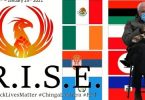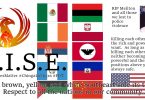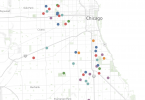The Chicago Police Department’s controversial stop-and-frisk policy has routinely violated the constitutional rights of mostly African-Americans who have not committed any crime, according to a federal lawsuit filed Monday.
The suit was filed on behalf of six African-American men from the South and West sides and seeks class-action status. The defendants are the city, police Superintendent Garry McCarthy and 14 unnamed police officers.
The 36-page lawsuit alleged that the “suspicionless” street stops have led to constitutional abuses including unlawful searches and seizures as well as excessive force.
According to plaintiff Gregory Davis, police officers stopped him in July 2014 while he waited in his vehicle on South Stony Island Avenue for a family member to come out of a Walgreens store. Officers asked Davis, 58, why he was sitting there and demanded his driver’s license and insurance information, the lawsuit alleged.
The officers “looked through the window into Davis’ vehicle before allowing (him) to return to his nearby home,” the lawsuit alleged. No citations were issued.
Three months later, Davis was again stopped without probable cause as he drove through an alley in his Woodlawn neighborhood, the suit alleged. The officers in that case took Davis’ license and registration and made him wait 20 minutes while they checked his background before letting him go with no charges or citations.
The suit referenced a March report by the American Civil Liberties Union that found African-Americans were stopped at a disproportionately higher rate than Hispanics and whites, especially in predominantly white neighborhoods. African-Americans were subjected to 182,048 stops, 72 percent of all stops, yet constituted 32 percent of the city’s population.
The ACLU said Chicago police keep records of street stops but not how often officers then go on to frisk the individual.
In all, more than a quarter-million stops took place from May through August 2014, according to the ACLU, which called the numbers “shocking” and “a troubling sign” of an illegal policy on the department’s part. None of those people stopped was arrested.
In a front-page Tribune article detailing the ACLU’s findings, McCarthy’s spokesman, Marty Maloney, said the department flatly prohibits racial profiling and other bias-based policing. Over the past three years, he said, the department has improved training to ensure officers abide by those restrictions.
Maloney also stressed the department has led a return to community policing to foster stronger relationships between officers and the city’s communities, calling it “the foundation of our policing philosophy.”
John Holden, a spokesman for the city’s Law Department, said officials were still reviewing the lawsuit Tuesday and had no comment.
Under the Terry v. Ohio decision by the U.S. Supreme Court in 1968, police can make stops when they have a reasonable suspicion that a person has committed or will commit a crime.
The officer must be able to articulate specific facts to justify the intrusion, according to the ACLU. Citizens can then be patted down if officers have a reasonable suspicion they are dangerous or armed with a weapon
If Chicago police officers stop a person on the street but don’t make an arrest, they are required to fill out “contact cards” with the age, address, race, time and location, any distinguishable marks or tattoos, and the reason for the stop.
http://www.chicagotribune.com/news/local/breaking/ct-stop-and-frisk-lawsuit-met-20150421-story.html







